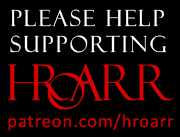Here is some short advise on writing to all of you who kindly have decided to join us in contributing to the HROARR site.
There are many types of texts that you can contribute with: Articles, reviews, news items, essays, summaries of books, travel diaries from visits and events or club tours, reflections on research or training and more. It’s all good as long as it is of interest to the community and not just your specific club.
Currently there are two specific “Research Projects”: Meyer Halben Stangen and Meyer Longsword. Posts can be made under those particular categories and will be listed under those pages accordingly. More projects will be added as they are suggested by the community and new article categories will be added to accomodate that.
One of the goals of the HROARR site is to help raise the quality of the research done in the HEMA community so we can collaborate better and more smoothly together with the academic community, ie the universities and the libraries. This is vital if we are to be taken seriously by such institutions. Consequently, when writing articles we should strive for an academic level, by which I mean using proper research methods and referencing.
However, keep in mind that this is a goal, something to strive for, and not an absolute requirement. We welcome everyone to write as best they can and there are many types of texts that do not require such strict writing: Personal reflections on the sources, training, competing, travel diaries, summaries, reviews etc does not have to adhere to such a standard.
There are already several academic HEMA organizations, but there is currently little room for those with no academic training to write, which we believe is unfortunate since we risk missing out on many interesting ideas. Consequently, HROARR now tries to fill this gap as well, while still working to aid in learning how to write better.
Returning to academic writing, “proper research methods” simply means that we need to use a methodology that secure that we solve a problem the best way possible. Such a methodology defines tools that we can use so we can understand as many aspects as possible of what we study, so we thereby can confirm, revise or refute the thesis, ie the idea we had when we started our research project.
Furthermore, in our writing, anything we pose and mention has to be based in either our own research, ie experiments, studies, interviews, statistics etc, OR other researcher’s results which has been already presented publicly in written form. So if we make a claim we have to be able to back it up. Everything else is irrelevant and can only be used as proposed venues for future research.
Proper referencing, has a strict academic form which must be used for “academic articles”. A link regarding this is provided below and a specific page is provided for it in the “Reading/Writing and researching” menu.
I hope you feel encouraged to write and grow in your writing by these words! I am sure all of you have great things to tell us all and that you can give us quite a few “aha”-moments!
Oh, and I welcome you to comment, criticize and expand on what I write here. We do this together as a community, as brothers and sisters.
Research Methodology
Analysing Historical Sources by Keith Farrell
http://historical-academy.co.uk/blog/2011/09/17/analysing-historical-sources/
Bringing Lost Teachings Back To Life “ A Proposed Method For Interpretation Of Medieval And Renaissance Fencing Manuals – by Bart Walczak
http://www.idokan.pl/txt/tomXI/2/(8) Barłomiej Walczak – Bringing Lost Teachings Back to Life – a Proposed Method for Interpretation of Medieval and Renaissance Fencing Manuals.pdf
Flawed Thesis Disorder: the Current Crisis of our Subject by John Clements
www.thearma.org/essays/FlawedThesisDisorder.htm
16th Century Research with a Mind for Meister Meyer by C. VanSlambrouck
http://freifechter.com/Research_with_a_Mind_for_Meister_Meyer.pdf
Teaching and Interpreting Historical Swordsmanship by Brian R. Price
www.amazon.co.uk/Teaching-Interpreting-Historical-Swordsmanship-Brian/dp/1891448463/ref=sr_1_1?ie=UTF8&qid=1316538797&sr=8-1
The Cutting Edge: Archaeological Studies in Combat and Weaponry by Barry Molloy
www.amazon.co.uk/Cutting-Edge-Archaeological-Studies-Weaponry/dp/0752441698/ref=sr_1_2?s=books&ie=UTF8&qid=1316593615&sr=1-2
Academic Writing
Writing references by Norges Handelshøyskole
www.nhh.no/en/library/writing-references.aspx
What is an academic paper? by Karen Gocsik
www.dartmouth.edu/~writing/materials/student/ac_paper/what.shtml
Academic Papers – A List of Internet Resources
www-e.uni-magdeburg.de/hkersten/WritingPapers/Writlink.htm
Writing Academic Essays and Reports by Daniel Chandler
www.aber.ac.uk/media/Modules/writess.html
Writing Tips
100 Little Ways You Can Dramatically Improve Your Writing
www.onlinecolleges.net/2010/01/17/100-little-ways-you-can-dramatically-improve-your-writing/
9 Ways To Improve Your Writing by Carl Natale
workawesome.com/communication/9-ways-to-improve-your-writing/
Improve Your Writing with these Editing Tips by Dustin M. Wax
www.lifehack.org/articles/communication/improve-your-writing-with-these-editing-tips.html
Rhetoric isn’t a bad thing—16 Rhetorical Devices Regularly Used by Steve Jobs by Nancy Duarte
http://blog.duarte.com/2011/03/rhetoric-isn%E2%80%99t-a-bad-thing%E2%80%9416-rhetorical-devices-regularly-used-by-steve-jobs/




